If you're reading this, it means I'm out of town and no one else snagged my blog post spot. However, since I was not able to put together an original video for this week, I decided to serenade you with a compilation of micro:bit stuff.
Before we released the micro:bit for sale, I put together a few videos going over how to program the BBC board. Since then, we've started selling the board, and I wanted to revisit some of these concepts.
If you'd like to read our Getting Started guide, it can be found here:
Getting Started with the micro:bit
September 2, 2021
The BBC micro:bit is a compact, powerful programming tool that requires no software installation. Read on to learn how to use it YOUR way!
MakeCode
Microsoft is supporting the BBC micro:bit in a big way. They've put together a drag-and-drop, web-based programming environment known as MakeCode, based on Google's Blockly. It is very similar to Scratch, but MakeCode compiles and downloads the user program to be run on the micro:bit's microcontroller. Similar to Scratch, MakeCode is aimed at 8- to 16-year-olds, although with a bit of coaching, you can probably get younger kids to code.
My four-part video series on micro:bit for SparkFun focuses exclusively on getting started with MakeCode (the playlist can be found here; it just wasn't embedding properly on the blog).
MicroPython
MicroPython is a stripped-down implementation of Python 3 that is optimized to run on microcontrollers, and there is a version of it available for the micro:bit. For older kids or programmers who want an easy-to-use text-based programming language, MicroPython is the way to go. In case you're curious, MicroPython is both compiled and interpreted to achieve its execution speed while maintaining the flexibility of a high-level language.
Like a good content creator, I came prepared with a couple of videos that show you how to use MicroPython with the micro:bit. (WARNING: I made these on my own, so they lack the professional polish of a SparkFun-produced video.)
If you want to check out MicroPython for the micro:bit, here are some resources:
mbed
If you really want to get down into the weeds, you can use C++ to program the micro:bit. The micro:bit is fully mbed-enabled, which means you can use ARM's online editor and compiler to write programs and download them to the micro:bit.
Unfortunately, I have not written many tutorials for mbed, and nothing for writing C++ for the micro:bit. However, if you are curious about how programming in mbed works, you can check out my mbed Starter Kit documentation. It's probably a little out of date at this point, but many of the examples should still work (and may even work for the micro:bit, assuming you have the necessary parts).
Has anyone gotten their micro:bit yet? If so, how do you like it, and what things would you like to see supported for it? Let us know in the comments below!
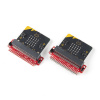
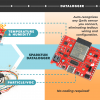
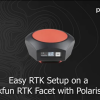
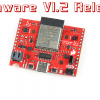
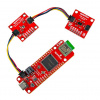
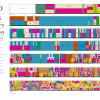
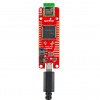
I've had mine for a while now and I love it as a way to get my kids (age 7-11) involved and they love it too. It is very easy for them to code and then feel the gratification of it working. I plan on getting a few more so they can communicate with each other. I would like to see a tutorial on working between the Rasbery Pi and the Micro:bit so they can communicate over Bluetooth.